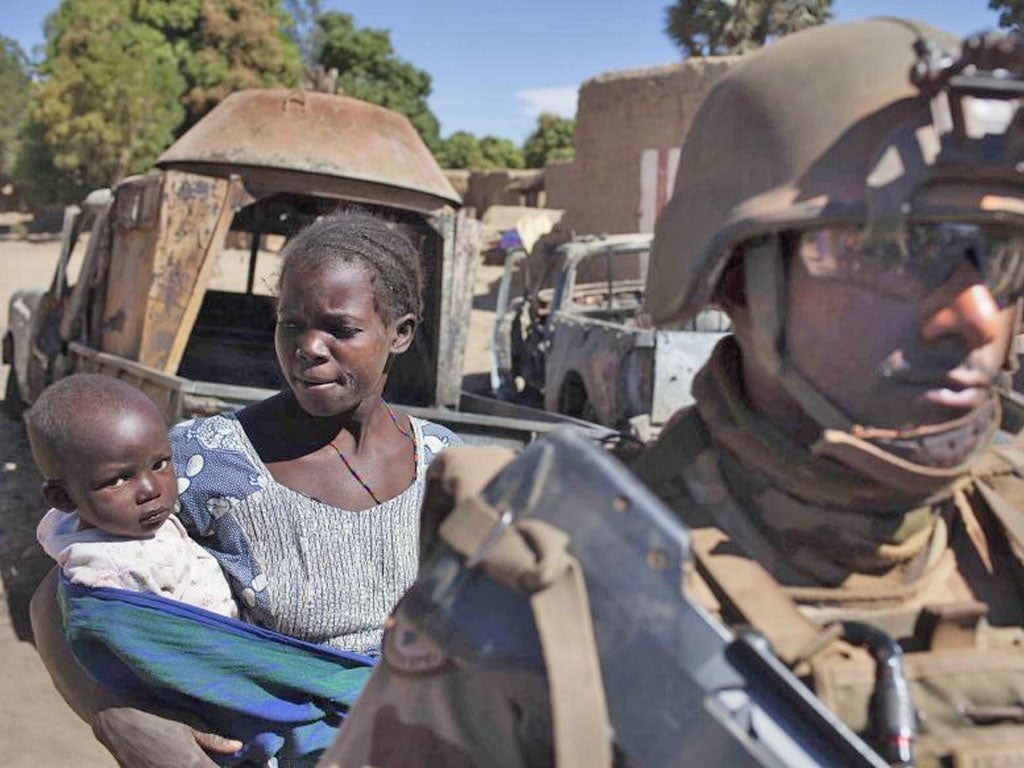Police move in to guard safe haven for 66 rescued child soldiers in Central African Republic (CAR)
The Independent's campaign has raised over £225,000. But as the latest news makes clear, the problems facing children in the CAR have not gone away


You can still donate to our Child Soldiers campaign here.
A police guard was yesterday placed on the compound where 66 rescued child soldiers are being given safe haven in Bangui, the capital of the Central African Republic, amid fears that they may be seen as enemy combatants and targeted by local residents.
The children, who were rescued from armed rebel militias by Unicef as part of the work funded by the recent Independent Christmas Appeal, had been evacuated from a transit camp in Bria in the north of the country which was overrun in a rebel offensive last month.
Rebel forces halted just outside the capital and then pulled back after a peace deal with government led to an agreement for the formation of national unity government. But panicky Bangui residents protested at the presence of the children in the Unicef compound in the capital, seeing the former child members of the rebel armies as a potential “enemy within”. The rescued children have been moved once again to a safer location and been given police protection.
The past month has added to the trauma undergone by boys once pressed into military service in the rural areas and girls used by the rebels as sex slaves. When they first arrived in what they had assumed would be the safety of the capital, they were briefly detained by police as suspected fifth columnists. Unicef staff managed to persuade the authorities of the children’s innocence and vulnerability. The government has now ordered the police to guard their new location.
Since the peace deal was signed in nearby Gabon two weeks ago the security situation in the Central African Republic has stabilised. Unicef has secured significantly improved access to war-torn areas to ship in humanitarian aid and has called on all the warring factions to identify and release forcefully recruited children from their ranks without delay.
Yet the situation remains potentially volatile as government and rebels negotiate over ministerial posts in the new government. Opposition leader Nicolas Tiangaye has been appointed prime minister but there are disagreements over who should take the ministry of defence, among others.
Some rebel leaders, who accuse President François Bozizé of reneging on agreements in the past, are refusing to withdraw troops further than 150km from Bangui and say they could still march on the capital if full agreement is not reached. Further north the ceasefire is being sporadically broken by looting warlords.
“The rescued children are safe, well and being cared for,” a Unicef spokeswoman said. “Our staff are concerned that they may be becoming institutionalised, but keeping them safe and secure is our primary concern”.
Donate to the campaign here.
Join our commenting forum
Join thought-provoking conversations, follow other Independent readers and see their replies
1Comments